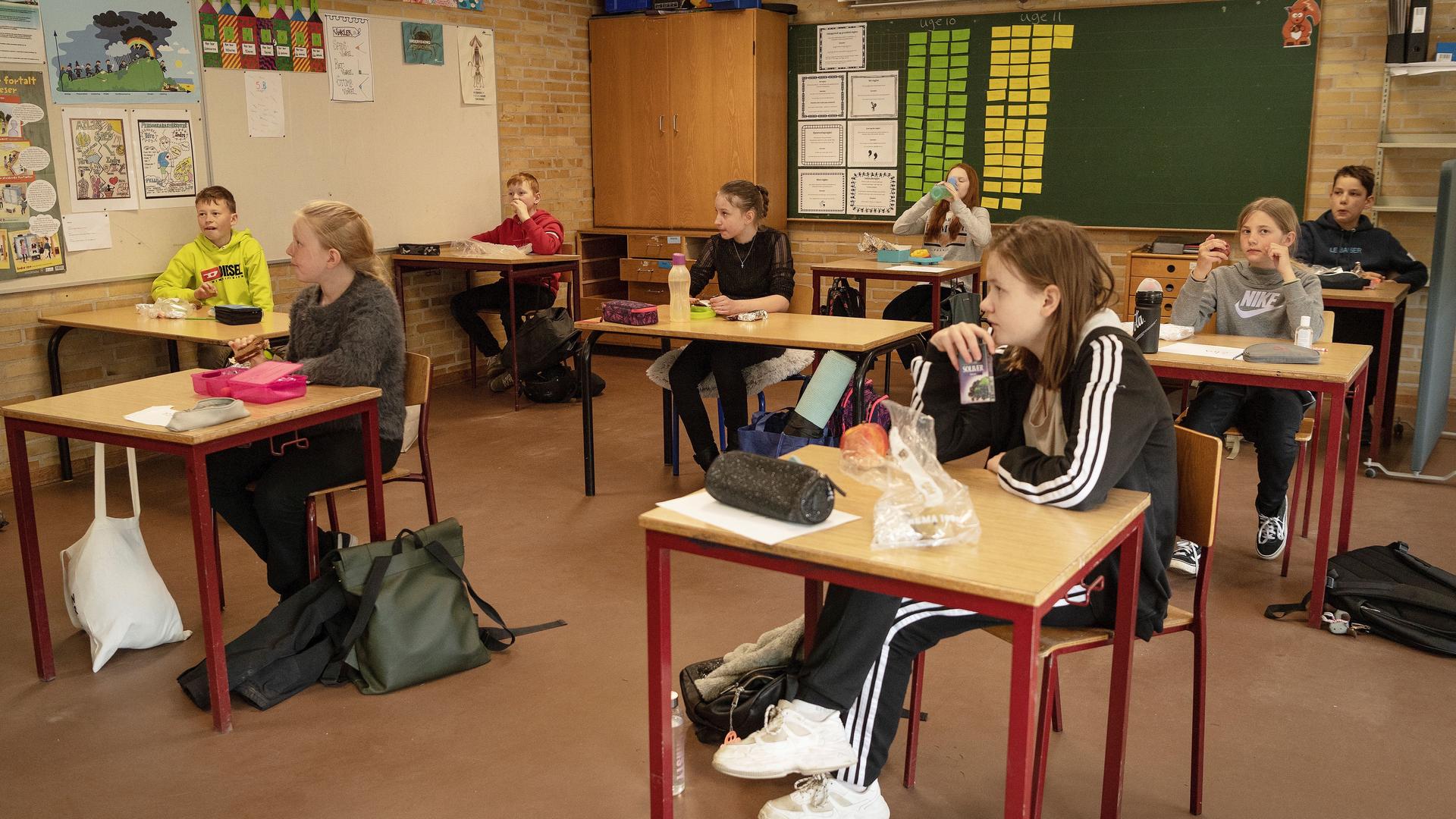Denmark was one of the first countries to reopen schools and child care centers after early success in curbing the coronavirus.
Kids up to the age of 12 have been in child care and school since the middle of April. But while many parents are relieved about classes resuming for young children, others are less enthused.
Related: Swedish town uses chicken manure to disperse crowds — and stop spread of coronavirus
Esme Emma Sutcu runs Momster.dk, an online community with thousands of members. She says there’s been plenty of anger and outrage since the announcement about young kids going back to school.
“We had a lot of reactions, and it was clear for us to see that people were against this. These moms primarily were focusing on their kids; the government was gambling with their kids’ lives. They were feeling this was a very unsafe solution. Some of them even said something like, ‘They feel that our kids are being pushed into the front lines; like it’s in a war zone.’”
“We had a lot of reactions, and it was clear for us to see that people were against this,” she says. “These moms primarily were focusing on their kids; the government was gambling with their kids’ lives. They were feeling this was a very unsafe solution. Some of them even said something like, ‘They feel that our kids are being pushed into the front lines; like it’s in a war zone.’”
There is also a large Facebook group where parents opposing the reopening meet. It’s called My Child Should Not Be a Corona Guinea Pig and has more than 40,000 members.
One of them is Elisabeth Sommer. Both of her parents have serious health issues.
“My 10-year-old son [could] be infected with COVID-19 at school, and then [be] bringing it home to them.”
She also thinks the massive changes the children have to face in the new way of going to school cannot be good for them.
Related: Fires, orchestras, parachutes. Some other ways to describe coronavirus — besides war.
“My boy’s school sent home 14 pages of information about all the precautions they’re taking to keep kids safe,” she said. “But that is also a lot of things the children have to do. It’s just too much for children.”
And school life is indeed very different now for children and parents. Drop-off times are divided into five-minute intervals to minimize personal contact. Everyone is supposed to stand at least 2 meters apart. At first, the kids had to wear color-coded logos around their necks. That’s because they’re organized into smaller class sizes and more structured playtime.
A lot of the children are grouped together with just a couple of other classmates. Again, to limit contact. And many of them now have different teachers.
Some parents don’t feel comfortable with all of the changes — and rightly so, says psychologist Grethe Kragh-Müller, who teaches at the University of Aarhus. She says these kinds of distancing rules are difficult to apply to children.
Related: Kids in Spain venture outside for the first time in weeks as lockdown gradually eases up
“I’m concerned because I don’t think it’s a good idea to start putting the little ones to child care and school,” she said. “Maybe they can learn the rules by heart. But they won’t be able to understand the rules, and they won’t be able to follow them because their brain is not mature enough.”
That’s stressful in and of itself, but she is also thinking about the impact on their emotional well-being.
“I’m concerned we might see a lot of anxiety in children because what is this disease — where is it? It can be everywhere. It can be on me. I’m afraid this will raise a lot of questions in the heads of these little children and create anxiety in them.”
“I’m concerned we might see a lot of anxiety in children because what is this disease — where is it? It can be everywhere. It can be on me. I’m afraid this will raise a lot of questions in the heads of these little children and create anxiety in them,” she said.
Medical experts here say the risks are manageable — because young children, overall, are not becoming very sick from COVID-19. But that’s just not reassuring enough for many parents.
Related: Corona Diaries: Open-source project chronicles pandemic life via voice notes
The Danish government is now talking about the possible return to schools for children older than 12. No final decision has been made just yet. But what does seem likely is that any move to reopen more schools will be received with mixed reactions.
Our coverage reaches millions each week, but only a small fraction of listeners contribute to sustain our program. We still need 224 more people to donate $100 or $10/monthly to unlock our $67,000 match. Will you help us get there today?
